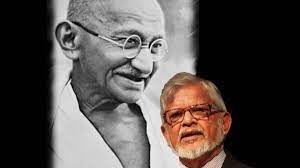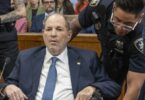Monitoring Desk
NEW DELHI: Grandson of Indian leader Mahatma Gandhi Arun Manilal Gandhi has passed away after brief illness in Kolhapur on Tuesday morning. He was 89, reported Hindustan Times on Wednesday.
The funeral of author and socio-political activist was held later in the day at Kolhapur, according to his son Tushar Gandhi who arrived at the city.
Born to Manilal Gandhi and Sushila Mashruwala in Durban on April 14, 1934, Arun followed in the footsteps of his grandfather as an activist. He had arrived in Kolhapur on February 28 and planned to stay for ten days.
According to those associated with Avani Sanstha located at Hanbarwadi near Kolhapur city, Arun used to visit the organisation which works for girls and women, mainly homeless.
At Avani Sanstha, he became ill and later passed away.
A note from the Avani Sanstha stated that, at the age of 12, Arunbhai came to India to live with Mahatma Gandhi at Sevagram Ashram. In 1948 he returned to South Africa and was active in various social movements.
“Arunbhai has contributed immensely to Avani’s cause and has been a father figure for us. In February this year, when Arunbhai was visiting Avani, his health deteriorated and he could not return. He had been staying with us at Hanbarwadi campus since then,” said Avani founder Arun Chavan.
Married to Sunanda in 1957, Arun Gandhi was after marriage informed that the South African government would not allow her to accompany him there. Sunanda and Arun decided to live in India, and Arun worked for 30 years as a journalist.
In 1987, the couple came to the US and in 1991 they started the M. K. Gandhi Institute for Nonviolence at the Christian Brothers University in Memphis Tennessee.
In 1982, when Columbia Pictures released the feature film, Gandhi, based on his grandfather’s life, Arun Gandhi wrote an article criticizing the Indian government for subsidizing the film with USD 25 million, arguing that there were more important things to spend money on.
After attending a special screening of the film, he concluded that it accurately conveyed his grandfather’s philosophy and legacy, despite historical inaccuracies. He wrote another article retracting the first one.







